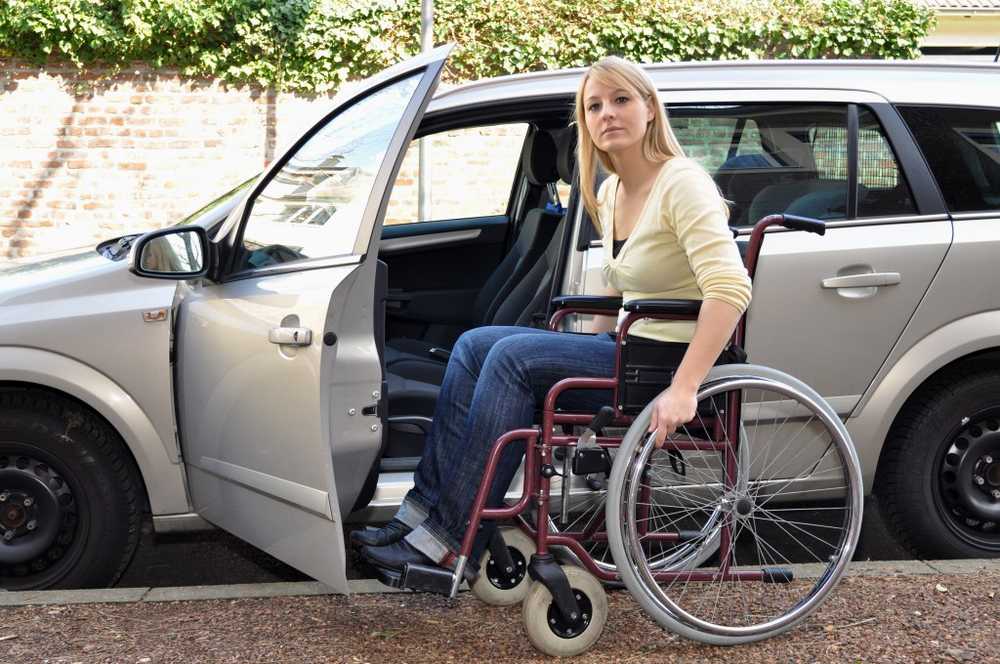Judgment handicapped parking must really be handicapped accessible

Karlsruhe (jur). Disabled parking spaces must not bring down wheelchair users. If municipalities do not design them as wheelchair accessible, this constitutes an unacceptable disadvantage for disabled people, according to a resolution of the Federal Constitutional Court in Karlsruhe published on Thursday, 21 April 2016 (Ref .: 1 BvR 2012/13). Falling wheelchair users because of the cobblestone, come due to faulty traffic safety obligations of the municipality compensation and compensation for painful consideration.
In the specific case, it was a disastrous parking on a disabled parking directly at the town hall of the county seat Ratzeburg in Schleswig-Holstein. The plaintiff, a wheelchair user, had fallen into her wheelchair on 6 November 2009 when transferring her car. She broke her right lower leg.
 Judgment on disabled parking spaces. Image: Dan Race - fotolia
Judgment on disabled parking spaces. Image: Dan Race - fotolia For the fall, she made the nature of the disabled parking space. Because the municipality has provided this with a historic cobblestones. This is not suitable for wheelchairs. When changing into her wheelchair, she had slipped away because of the soil condition.
From the community, she demanded compensation and damages in the amount of 4,957 euros. The county seat did not comply with their obligation to provide public safety and did not design the disabled parking space for disabled people.
Before the Schleswig-Holstein Higher Regional Court (OLG), she had no success. However, the Schleswig judges had not even checked whether the cobblestones were unsuitable for wheelchair users and therefore responsible for the fall. A liability of the county seat is already excluded, because the wheelchair user has exposed herself to an "avoidable danger".
Because she already knew about the cobblestones before her fall. As an "activist" for disability rights, she had already taken part in an action day in the spring of 2009, pointing out the lack of accessibility of the parking space. Since she knew of the dangerousness of the parking lot, she had to switch to another parking lot. Because she is obliged to avoid an own risk. The same applies to non-disabled people who move in unsecured parking spaces with ice and snow, argued the OLG Schleswig.
In its decision of 24 March 2016, however, the Federal Constitutional Court considered the constitutional complaint of the wheelchair user "obviously justified". According to the Basic Law, disabled people should only be placed in a worse position if there are "compelling reasons" for this. However, a prohibited discrimination against disabled people could be present if they were excluded from the scope for development and action.
Here, the complainant had used a parking lot in Ratzeburg "which was intended for people with disabilities". However, a non-wheelchair-friendly design of a disabled parking space represents a disadvantage. Because the state has a funding mandate to enable the equal participation of disabled people in everyday life. Disadvantage-related disadvantages must therefore be eliminated.
Whether in the specific case the cobblestone was actually not wheelchair accessible and cause of a fall, therefore, the OLG should re-examine, so the Federal Constitutional Court. If the municipality did not develop the disabled parking space for disabled people, there could be a liability for compensation and compensation for pain and suffering. A possible contributory negligence of the wheelchair user can not have such a weight that it is completely excluded from claims for damages. (Fle / mwo)


